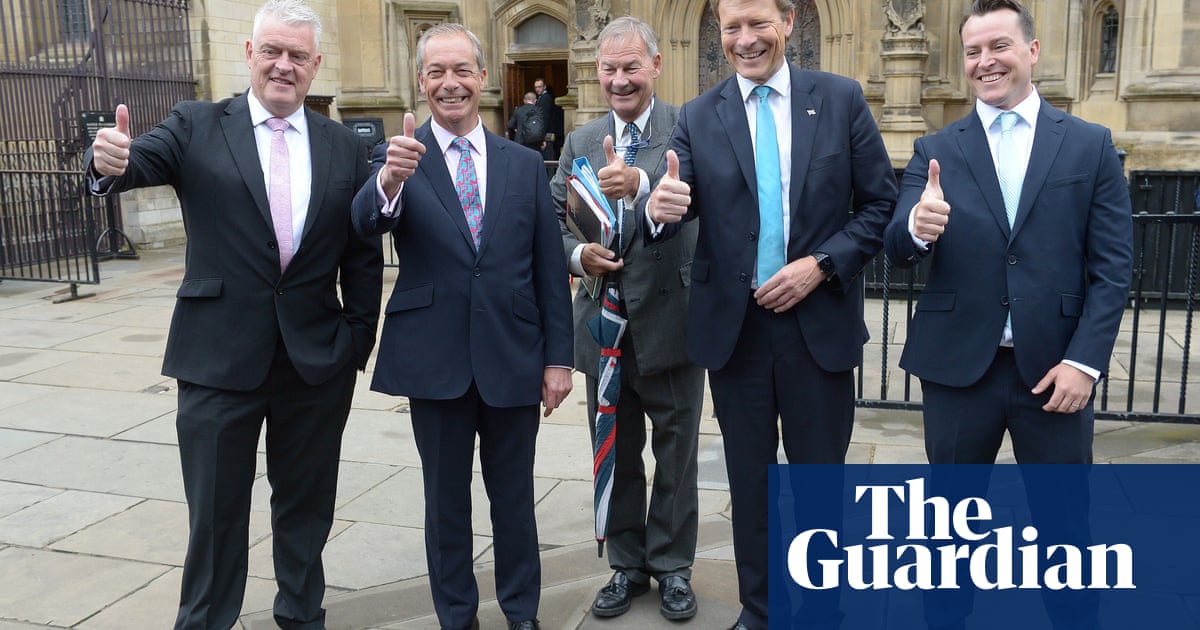Every constituency that elected a new Reform UK candidate at the general election has experienced long delays to road improvement schemes and resulting congestion, a report has found, in a possible clue to the growing appeal of populist parties.
A series of other places where Nigel Farage’s party is now polling well are also lacking transport infrastructure, the report added, as well as a perception among locals that decisions were being made in London that made their lives more difficult could push them to abandon major parties.
The report, by the consultancy Stonehaven, stressed that it “does not argue that the presence or absence of a road is the root cause of populism, or recommend building these particular roads”.
It added: “But it does argue that an absence of good transport links to the outside world – especially by road – is one of places where populist critique rings true.”
Such a demonstrable link between physical infrastructure and the rise of populist parties is particularly resonant for Keir Starmer’s Downing Street, where his team believe that they could lose numerous seats to Reform at the next election unless they can tangibly improve voters’ lives, a view shared by many Labour MPs.
The report argues that roads appear to be a particularly important emblem of areas that feel “left behind” and failed by central government, particularly those where a lack of good public transport and the need for many people to travel to work outside the town creates regular gridlock.
Reform took five seats in July with one of them, Ashfield, already held by the party, after Lee Anderson defected from the Conservatives four months before the election.
Of the four other seats, the report lists Great Yarmouth, the Norfolk town now represented by Reform’s Rupert Lowe, as a particularly good example of the idea, with its route towards Norwich, the A47 Acle Straight, being a single carriageway despite years of local campaigning, and 22,000 vehicles using it every day.
People in Clacton-on-Sea in Essex, where the MP is now Farage, are heavily reliant on the A133 road where abandoned plans to improve it are evident in “ghost bridges” built for a proposed scheme but never used, the report notes.
Similarly, Skegness, in the area represented by Richard Tice, is in a part of Lincolnshire with notoriously poor road links and no success with campaigns to extend the M11 motorway.
South Basildon, won by James McMurdock, is better connected but faces significant freight traffic, worsened by long delays to the Lower Thames Crossing.
The report used constituency-level MRP polling carried out last month, which estimated that of six Labour MPs whose constituencies adjoin the A1(M) around Doncaster, an increasingly busy route not greatly improved since it opened in 1961, five would currently lose their seats to Reform.
Robert Ford, professor of politics at the University of Manchester, said the study seemingly gave a clue as to why Reform and its predecessors, Ukip and the Brexit party, tended to do disproportionately well in coastal parts of the east of England, given the often poor transport links in these areas.
Poor transport was both a source of frustration in itself, but also likely to exacerbate economic decline, and encourage the exit of younger, more aspirational locals, Ford added.
There was, however, one potential benefit to this for mainstream parties seeking to counter populists, he said: “The A1(M) not being upgraded since 1961 is a very specific and real concern that you can address in a very specific way. Even if it isn’t the only, or even the most important driver of this kind of support, it is something that politicians can actually grip.
“If people are saying, ‘I don’t like the way society is changing,’ it’s kind of rather hard to know what the policy response is, whereas in this case it’s rather easier.”

